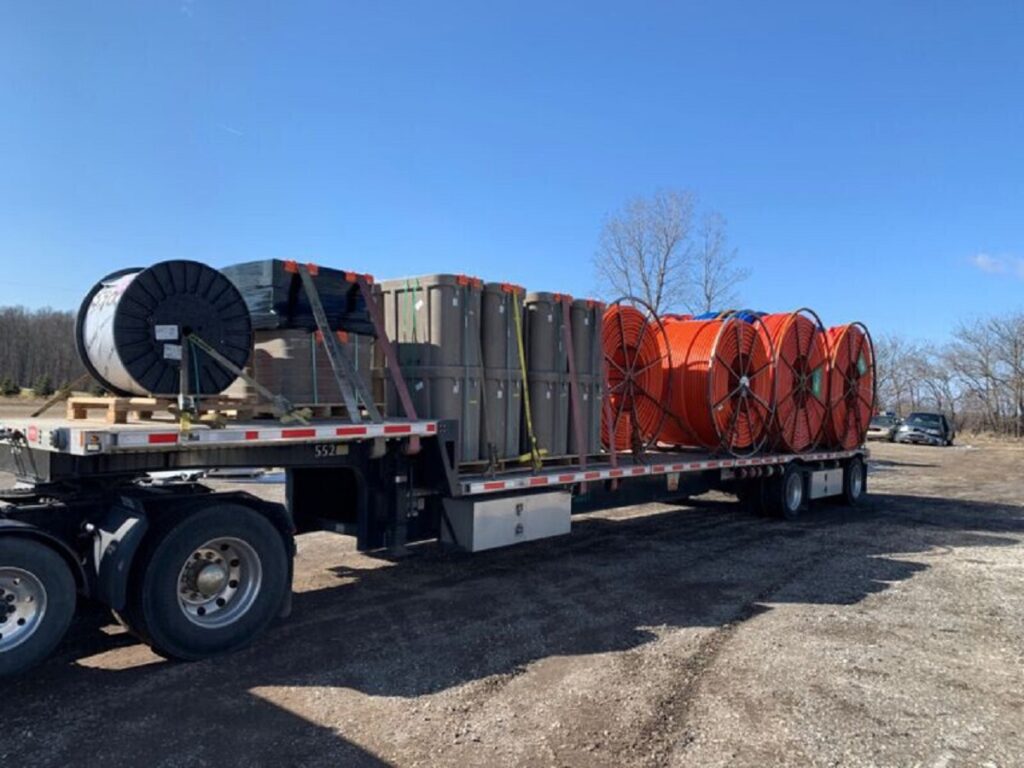When you live in a rural area, a slow or unreliable internet connection can feel like the ultimate frustration, especially in today’s digital world where working from home and staying connected is a necessity. For Jared Mauch, a network architect from Michigan, this struggle turned into a groundbreaking solution that not only solved his own problems but also transformed his community.
A Remote Worker’s Struggle
It all started in 2002. Mauch, who was already accustomed to working from home for Akamai, a company that provides server cache services for businesses, was facing a significant problem—his internet connection. At the time, he was stuck with a wired connection that barely managed 1.5 Mbps. As a remote worker, this was simply not sustainable. Without modern solutions like Starlink, fiber optics, or Wi-Fi 7, his options were severely limited. The only other solution he was offered was a costly $50,000 extension from Comcast, a price Mauch found unacceptable.
With no feasible option in sight, Mauch decided to take matters into his own hands.
Turning Frustration Into Innovation

Drawing on his network expertise, Mauch decided to build his own internet service provider (ISP). He founded Washtenaw Fiber Properties LLC, a company focused on providing high-speed fiber-optic internet to his rural Michigan community. It was a bold move, one that would require a significant upfront investment of $145,000, but Mauch was determined to make it work.
The initial reaction from his neighbors was skepticism—after all, they were used to the limited options that had been available for years. But as the service began to roll out, something amazing happened. The community, impressed by the symmetrical internet speeds that could reach up to 500 Mbps, started signing up. By 2021, Mauch’s company had served 30 customers, and by the next year, that number had grown to over 70.
Expanding to Reach More Communities
Mauch’s idea quickly turned from a personal project into a thriving business. With the help of federal support, his company expanded rapidly, reaching 417 new locations across several nearby rural areas. His success story became a beacon of hope for many, offering fast, reliable internet to places that had long been neglected by traditional ISPs.
What’s even more impressive is Mauch’s pricing model. The service offers 100 Mbps symmetrical connections for as little as $55 per month, with 1 Gbps connections available for $79. This is a competitive price for areas that have previously struggled with slow speeds or poor connectivity, making Mauch’s service an essential lifeline for those who rely on the internet for everything from work to basic communication.
Bridging the Digital Divide
Mauch’s journey highlights the kind of ingenuity that’s needed to tackle the digital divide, particularly in rural communities. In many countries, including the U.S., there are still millions of people who live in areas without reliable internet access. Mauch’s work addresses this problem head-on, not just for his own community, but for other under-served areas as well.
His story resonates globally, especially in regions where access to the internet is still a luxury rather than a given. For example, in France, around 15% of the population over 15 years old didn’t have access to the internet in 2019, according to INSEE. Those who are most affected include the elderly, the economically disadvantaged, and people living in rural areas. Mauch’s success proves that with the right combination of expertise, passion, and determination, these challenges can be overcome.
The Future of Local ISPs
Despite his newfound success, Mauch remains committed to his work as a network architect at Akamai. His role in this larger company gives him the knowledge and resources to continue innovating and expanding his fiber-optic network. But even as he manages a growing ISP, he remains grounded by the mission that started it all—bringing high-speed internet to areas that had been forgotten by major telecommunications companies.
This inspiring tale isn’t just about a man who built a business; it’s about the power of resilience, community, and the drive to create solutions when no one else will. Mauch’s story is a testament to the fact that, sometimes, the best solutions come not from the big players but from individuals who are willing to think outside the box and take action.
As Mauch continues to expand Washtenaw Fiber Properties, his success stands as a beacon of hope for those living in areas that still face connectivity struggles. It’s a reminder that the internet—so essential to modern life—should be available to everyone, no matter where they live.






